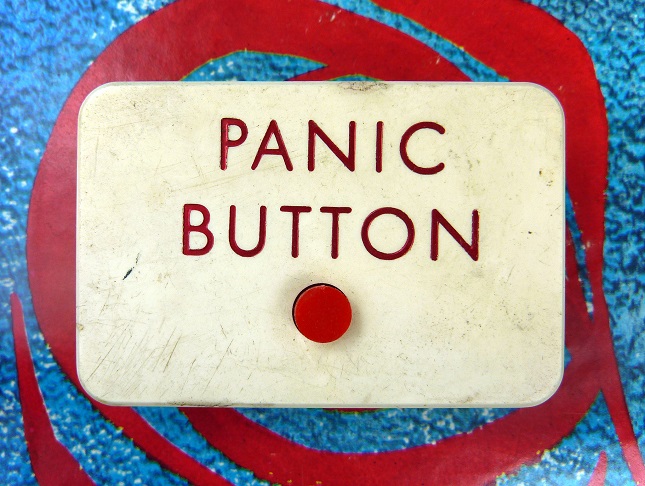How to attract customers after a Google search engine penalty
How much of your website traffic comes from Google? What would happen if that source of potential customers were to dry up overnight? Would your business be able to cope if your search engine rankings suddenly plummeted? Maybe they already have and you’re wondering where your next customer is going to come from.
If your site has been penalised by Google, or you’re worried that a penalty might be heading your way at some point in the future, it’s important that you start attracting visitors from sources other than organic search. If you’re unsure as to whether your site has been penalised by Google, then this guide will help you find out. It will also tell you how you can get on the road to recovery.
Unfortunately, recovering from a penalty can be a long process. So while you’re working on getting a penalty removed, here are five ways to attract traffic and potential customers. If you were attracting most of your customers through organic search before you were penalised, these alternative channels could be what you need to keep the sales coming in.
And remember, even if you haven’t been penalised, it’s never a good idea to be overly reliant on one source of traffic. Adopting these methods before something happens to your search rankings could save you a lot of trouble if your site does one day fall out of favour with Google. Let’s get started.
Pay-per-click advertising
Your organic listings may have gone, but that doesn’t mean you can’t attract potential customers through Google. The search engine’s pay-per-click (PPC) advertising platform, AdWords, is a great source of traffic. Done correctly, AdWords can drive leads to your site at a cost which allows you to remain profitable. You can learn how to get started with AdWords in this guide.
If you no longer rank for a set of organic keywords which were generating a significant profit for you, it may be worth targeting those with a PPC campaign. However, if a lot of your rivals are bidding on those keywords, they may be prohibitively expensive. The most important thing is not to try and mimic your old organic rankings, but to target keywords that convert at a cost which allows your business to make a profit.
Social media adverts
With 1.35 billion and 284 million users respectively, it’s likely that your potential customers are on Facebook and/or Twitter. The fact that both these platforms allow businesses to advertise through a self-service platform means they’re a great way to reach people. You can learn how to get started with Facebook advertising in this guide, and Twitter advertising with this guide.
If you haven’t yet been penalised by Google, you should strongly consider using these advertising platforms to create a pixel which builds a list of people who visit your website. That way, if your rankings do drop you can still reach people who have been on your site in the past. It sounds complicated, but both Twitter and Facebook offer detailed guides to help you to do this. Before you do that though, you’re probably going to want to try running a few small campaigns to get to grips with things.
You can either promote content to reach a wider audience, or promote product pages to sell more directly. Either way, you’ll be able to drive new visitors to your site.
Email lists
Email is an excellent way to keep in touch with customers even if your search rankings are good. It allows you to connect directly with people when you have something of interest to say. If you’ve already built an email list before you were penalised, then you should consider upping the frequency of your messages. You shouldn’t start emailing people every day of the week, but you may want to consider sending new types of mails such as special offers or newsletters. This will help remind people that you’re still around, even if they can no longer find you in search results.
If you haven’t yet been penalised, but are worried it might happen in the future you should start building an email list now. If you have been penalised and don’t have an email marketing list, you can still attempt to build one, especially if you want to focus on lead generation rather selling direct. Use one of the above advertising methods to direct people to your sign up page.
Public relations
Press coverage, even on a local level, can help bring your business to the attention of people who otherwise wouldn’t have heard of you. Journalists are always looking for stories, so if you’ve done something remarkable in your particular field then let the business report on your regional paper know about it. Alternatively, participating in charity events is an excellent way to get coverage. If you can get your website name out there, you’ll attract potential customers. You can also start building links to replace the bad links which saddled you with a penalty in the first place. Some firms have even turned the news of their Google penalty into a PR event.
Conversion rate optimisation
This isn’t about driving more customers to your site, but about making it more likely that people who are visiting your site will become customers. Online businesses should really be thinking about conversion rate optimisation (CRO) at all times. However, if you have been penalised by Google and you haven’t look at CRO before it’s the ideal time to start – if you can boost conversion rates then that will go some way to mitigating the damage caused by lost visitors. You can learn more about getting started with conversion rate optimisation with this webinar and this guide to A/B testing.
Have you been penalised by Google? What did you do to replace the lost traffic? Let us know in a comment.


